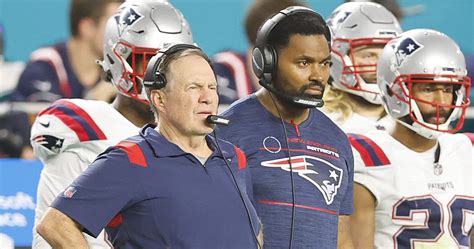
Karl-Anthony Towns is reportedly facing internal criticism from his Minnesota Timberwolves teammates, who are allegedly blaming the star center for the team’s disappointing first-round playoff exit against the Denver Nuggets. Whispers from within the Timberwolves organization suggest a growing frustration with Towns’ performance and perceived lack of leadership during the series.
The Timberwolves’ early playoff departure has triggered a period of intense self-reflection, with sources indicating that Towns’ teammates are questioning his commitment and impact on the court, especially during crucial moments. According to a report from Yahoo Sports, the discontent stems from a combination of factors, including Towns’ inconsistent play, defensive liabilities, and perceived inability to rise to the occasion when the stakes are highest.
“It’s one thing to struggle. It’s another thing to not give a s***,” one player told Yahoo Sports, summing up the frustration brewing within the team. This sentiment reflects a broader concern that Towns, despite his immense talent, has not consistently demonstrated the dedication and leadership required to lead the Timberwolves to sustained success. The comments paint a picture of a locker room divided, with some players openly questioning Towns’ ability to be the cornerstone of a championship-caliber team.
The criticism is particularly pointed given the Timberwolves’ significant investment in Towns, who signed a four-year, $224 million supermax extension last summer. This lucrative deal came with heightened expectations, and Towns’ inability to meet those expectations in the playoffs has fueled the growing discontent among his teammates.
The series against the Nuggets exposed several of Towns’ weaknesses, including his struggles against Nuggets center Nikola Jokic. While Jokic is widely regarded as one of the league’s best players, Towns’ inability to contain him on the defensive end was a major factor in the Timberwolves’ defeat. Offensively, Towns also failed to consistently assert himself, often deferring to other players and failing to take over games when the team needed him most.
One anonymous teammate described Towns’ performance as “soft” and lacking the intensity required for playoff basketball. This harsh assessment underscores the growing perception that Towns is not fully committed to doing whatever it takes to win.
The situation is further complicated by the presence of Anthony Edwards, who has emerged as the team’s clear leader and best player. While Edwards has publicly supported Towns, there is a growing sense that the Timberwolves’ future success hinges on Edwards taking on an even greater leadership role. The dynamic between Edwards and Towns will be crucial to watch as the team navigates this period of internal turmoil.
The Timberwolves’ front office is now faced with the difficult task of addressing these internal issues and determining the best path forward. Whether they can resolve the conflict and get Towns to buy into a more team-oriented approach remains to be seen. The offseason will be a critical period for the Timberwolves, as they must decide whether to continue building around Towns or explore other options.
The report highlights specific instances where Towns’ performance fell short of expectations. In Game 5, a pivotal contest that could have shifted the momentum of the series, Towns scored just 14 points on 5-of-13 shooting. He also struggled defensively, allowing Jokic to dominate the paint. His lack of aggression and inability to make key plays down the stretch drew the ire of his teammates.
“We need him to be our closer,” one player told Yahoo Sports. “But he doesn’t want that role.” This quote encapsulates the frustration of teammates who believe that Towns is not embracing the responsibility that comes with being a max-contract player.
The criticism of Towns extends beyond his on-court performance. Some teammates reportedly feel that he is too focused on his individual statistics and not enough on the overall success of the team. They also question his leadership and his ability to hold himself and others accountable.
“He’s always worried about his numbers,” one player said. “He needs to focus on winning.” This sentiment reflects a broader concern that Towns is more concerned with his personal accolades than with helping the team achieve its goals.
The Timberwolves’ struggles are not solely attributable to Towns. Other players also underperformed in the playoffs, and the team as a whole struggled to execute its game plan consistently. However, as the team’s highest-paid player and one of its most important leaders, Towns is facing the brunt of the criticism.
The Timberwolves’ coaching staff is also under scrutiny. Head coach Chris Finch has been praised for his offensive system, but some observers question his ability to motivate Towns and hold him accountable. The coaching staff will need to find ways to get Towns more engaged and invested in the team’s success.
The situation is further complicated by Towns’ injury history. He has missed significant time due to various injuries in recent years, which has undoubtedly impacted his performance. However, his teammates reportedly believe that he is not always giving his best effort, even when he is healthy.
The Timberwolves’ front office will need to carefully evaluate Towns’ future with the team. While he remains a talented player, his inability to lead the team to success in the playoffs has raised serious questions about his long-term fit. The team may consider trading Towns in the offseason, although his hefty contract could make it difficult to find a suitable trade partner.
Ultimately, the Timberwolves’ success will depend on their ability to resolve these internal issues and get Towns to buy into a more team-oriented approach. Whether they can do that remains to be seen.
The issues surrounding Towns extend beyond just the Nuggets series. Concerns about his defensive capabilities have been a consistent theme throughout his career. While his offensive talent is undeniable, his struggles on the defensive end have often negated his positive contributions.
The modern NBA demands versatility and defensive competence from all players, especially those in key roles. Towns’ struggles in this area have been repeatedly exploited by opposing teams, making it difficult for the Timberwolves to compete against elite opponents.
One area of concern is Towns’ pick-and-roll defense. He often struggles to contain opposing guards and big men in pick-and-roll situations, leading to easy baskets for the other team. He also has a tendency to get caught out of position, leaving his teammates vulnerable.
Towns’ lack of physicality is another area of concern. He often shies away from contact, making it difficult for him to defend bigger, stronger players. This is particularly problematic in the playoffs, where physicality and toughness are paramount.
The Timberwolves have tried various strategies to compensate for Towns’ defensive weaknesses, including employing different defensive schemes and pairing him with more defensively-minded teammates. However, these efforts have not always been successful.
Towns’ defensive struggles are not solely a matter of physical limitations. Some observers believe that he lacks the necessary focus and intensity to be a consistently effective defender. They argue that he needs to be more engaged and committed on the defensive end.
The Timberwolves’ coaching staff has worked extensively with Towns to improve his defense, but progress has been slow. He has shown flashes of improvement, but he has not been able to consistently maintain a high level of defensive play.
The challenges with Towns aren’t new. His perceived attitude and leadership have been questioned in the past. This isn’t just about one playoff series; it’s a culmination of concerns that have been simmering for some time. The fact that these issues are now being aired publicly signals a significant fracture within the team.
The Yahoo Sports report suggests that this discontent is not just confined to a few disgruntled players. It’s a more widespread sentiment, indicating a deeper problem within the team’s culture. This is a red flag for the Timberwolves’ front office, as it suggests that the team is not functioning cohesively.
The Timberwolves’ front office will need to take decisive action to address these issues. They can’t simply hope that things will get better on their own. They need to proactively address the concerns of the players and find ways to improve the team’s culture.
One option would be to bring in a veteran leader who can help mentor Towns and hold him accountable. Another option would be to make changes to the coaching staff, bringing in coaches who are better equipped to motivate and develop Towns.
Ultimately, the Timberwolves’ success will depend on their ability to create a positive and supportive environment where all players are committed to the team’s goals. This will require open communication, honesty, and a willingness to address difficult issues head-on.
The pressure on Towns is immense. He’s the face of the franchise, the highest-paid player, and the one the team is counting on to lead them to the promised land. But with that pressure comes responsibility. He needs to demonstrate that he’s willing to put the team first and do whatever it takes to win.
The Timberwolves’ fans are also growing impatient. They’ve waited a long time for a winning team, and they’re starting to wonder if Towns is the right player to lead them there. The fans’ frustration is understandable, and the team needs to find a way to win back their trust.
The Timberwolves’ situation is a complex one, with no easy solutions. But one thing is clear: the team needs to address these internal issues and find a way to move forward. The future of the franchise may depend on it.
The article in Yahoo Sports also references historical instances where Towns’ performance has been called into question. Past playoff appearances have been marred by similar criticisms, suggesting a recurring pattern of underperformance in high-pressure situations.
For instance, in previous playoff series, Towns has often struggled with foul trouble, limiting his playing time and effectiveness. This has been a recurring theme throughout his career, and it’s something that he needs to address if he wants to be a reliable playoff performer.
He has also been criticized for his lack of aggressiveness in certain games. There have been times when he has seemed hesitant to take over games, even when the team needed him to. This has led to frustration among his teammates and coaches.
These past experiences suggest that Towns’ current struggles are not an isolated incident. They are part of a larger pattern of underperformance in the playoffs. This is a cause for concern for the Timberwolves, as it suggests that Towns may not be able to handle the pressure of the playoffs.
The Timberwolves’ front office needs to take a close look at Towns’ past performance and determine whether he is capable of overcoming these challenges. If they don’t believe that he is, they may need to consider other options.
The Timberwolves’ long-term success hinges on their ability to build a winning team around Anthony Edwards. Edwards has shown flashes of brilliance, and he has the potential to be a superstar. However, he needs a strong supporting cast around him to reach his full potential.
The Timberwolves’ front office needs to make sure that they are surrounding Edwards with the right players. This may mean making difficult decisions about the future of other players on the team, including Towns.
The relationship between Edwards and Towns will be crucial to the team’s success. They need to be able to play well together and support each other. If they can’t, the Timberwolves will struggle to compete against the top teams in the league.
The Timberwolves’ coaching staff needs to find ways to get Edwards and Towns to play well together. This may mean adjusting the team’s offensive and defensive schemes. It may also mean giving Edwards more opportunities to take over games.
Ultimately, the Timberwolves’ success will depend on their ability to build a cohesive team around Edwards. This will require strong leadership from the front office, the coaching staff, and the players.
The criticism of Towns also raises questions about his leadership style. Some observers believe that he is not a vocal leader and that he does not hold himself or others accountable enough.
Leadership is a crucial component of any successful team. A strong leader can inspire his teammates, motivate them to play their best, and hold them accountable for their actions. Without strong leadership, a team can struggle to reach its full potential.
Towns’ leadership style has been a subject of debate throughout his career. Some believe that he is a natural leader, while others believe that he needs to be more assertive.
The Timberwolves’ coaching staff has worked with Towns to develop his leadership skills, but progress has been slow. He has shown flashes of leadership, but he has not been able to consistently maintain a high level of leadership.
The Timberwolves’ front office needs to determine whether Towns is capable of becoming a stronger leader. If they don’t believe that he is, they may need to consider bringing in another player who can provide leadership.
The Timberwolves’ coaching staff also needs to create a culture of accountability. This means holding all players accountable for their actions, regardless of their status on the team.
A culture of accountability can help to improve the team’s performance and create a more positive environment. It can also help to develop stronger leaders.
The Timberwolves’ challenges are not unique. Many teams face similar issues, particularly when they have high expectations and fail to meet them.
The NBA is a highly competitive league, and success is not guaranteed. Even the most talented teams can struggle if they don’t have the right chemistry, leadership, and coaching.
The Timberwolves need to learn from their mistakes and find ways to improve. They need to be honest with themselves about their weaknesses and work hard to address them.
The Timberwolves’ front office needs to be proactive in addressing the team’s issues. They can’t simply wait for things to get better on their own. They need to make tough decisions and take decisive action.
The Timberwolves’ coaching staff needs to find ways to get the most out of their players. They need to be creative and innovative in their approach.
The Timberwolves’ players need to be committed to the team’s goals. They need to be willing to put the team first and do whatever it takes to win.
The Timberwolves’ fans need to be patient and supportive. They need to believe in the team and give them the time they need to develop.
Ultimately, the Timberwolves’ success will depend on their ability to work together and overcome their challenges. This will require strong leadership, a positive attitude, and a commitment to excellence.
The impact of this internal strife on the Timberwolves’ future is significant. The team’s ability to attract free agents, retain existing talent, and build a winning culture could all be affected by these reports.
Free agents may be hesitant to join a team that is perceived as dysfunctional or divided. Existing players may be more likely to leave if they are unhappy with the team’s environment.
The Timberwolves need to address these issues quickly and decisively if they want to maintain their competitiveness. They need to show that they are committed to building a winning culture and that they are willing to make the necessary changes to achieve that goal.
The Timberwolves’ front office needs to communicate clearly with the players and the fans about their plans for the future. They need to be transparent about the challenges they face and the steps they are taking to overcome them.
The Timberwolves’ coaching staff needs to create a positive and supportive environment for the players. They need to build trust and rapport with the players and show that they care about their well-being.
The Timberwolves’ players need to be committed to the team’s goals and willing to work together to achieve them. They need to put their individual egos aside and focus on what is best for the team.
The Timberwolves’ fans need to be patient and supportive. They need to believe in the team and give them the time they need to develop.
Ultimately, the Timberwolves’ success will depend on their ability to work together and overcome their challenges. This will require strong leadership, a positive attitude, and a commitment to excellence.
The long-term implications of these criticisms could be far-reaching. If the Timberwolves are unable to resolve these issues, they could face a prolonged period of mediocrity.
The NBA is a league of haves and have-nots. The teams that are well-run, well-coached, and have strong leadership tend to thrive. The teams that are dysfunctional, poorly coached, and lack leadership tend to struggle.
The Timberwolves need to make sure that they are on the right side of that equation. They need to address their internal issues, build a winning culture, and develop strong leadership.
The Timberwolves’ front office needs to be proactive in addressing the team’s issues. They can’t simply wait for things to get better on their own. They need to make tough decisions and take decisive action.
The Timberwolves’ coaching staff needs to find ways to get the most out of their players. They need to be creative and innovative in their approach.
The Timberwolves’ players need to be committed to the team’s goals. They need to be willing to put the team first and do whatever it takes to win.
The Timberwolves’ fans need to be patient and supportive. They need to believe in the team and give them the time they need to develop.
Ultimately, the Timberwolves’ success will depend on their ability to work together and overcome their challenges. This will require strong leadership, a positive attitude, and a commitment to excellence.
Frequently Asked Questions (FAQ)
1. What is the main issue discussed in the article?
The main issue is the internal criticism directed at Karl-Anthony Towns from his Minnesota Timberwolves teammates, who reportedly blame him for the team’s disappointing playoff performance.
2. What are some of the reasons behind the teammates’ frustration with Towns?
Reasons include perceived inconsistent play, defensive liabilities, a lack of leadership, being too focused on individual statistics rather than team success, and a perceived unwillingness to take on the role of a “closer” during crucial moments.
3. How does Anthony Edwards factor into the situation?
Anthony Edwards has emerged as the team’s clear leader and best player. While he has publicly supported Towns, there’s a sense that the Timberwolves’ future success hinges on Edwards taking on an even greater leadership role, which complicates the dynamic between him and Towns.
4. What options does the Timberwolves’ front office have to address these internal issues?
Possible options include bringing in a veteran leader to mentor Towns, making changes to the coaching staff, trading Towns (though his contract may make this difficult), and fostering a more positive and supportive team environment with open communication.
5. What does the article suggest about Towns’ past performances and leadership qualities?
The article highlights that concerns about Towns’ performance and leadership are not new. Past playoff appearances have been marred by similar criticisms, suggesting a recurring pattern of underperformance in high-pressure situations, and his leadership style has been questioned throughout his career.









